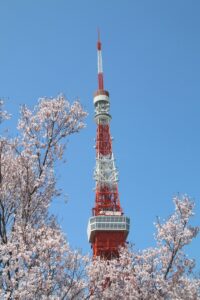Are you interested in mastering the fundamentals of sentence formation in the Japanese language? Look no further! In this article, we will provide you with a comprehensive guide on how to form sentences in Japanese using various methods.

In this article, we will learn to:
1) Make comparisons
2) Express desire
3) Conjugate sentences
4) Show whether an action is giving or receiving
5) Form reported speech
6) Create clauses with “because”
7) Create clauses with “if”
8) Create clauses with “in order to”
9) Use the passive voice
For a guide to forming tenses in Japanese, see our other articles. You can also find out more about verbs and adjectives on our website.
1) Forming Sentences in Japanese: Comparisons
In Japanese, “yori” is used to compare in the same way as “than” in English. Remember, it is important to understand the order of each noun. Let’s look at some examples to get started:
- 像は猫より大きいです。
Zou ha neko yori ookii desu.
An elephant is bigger than a cat.
像 = “zou,” elephant,
猫 = “neko,” cat
大きい = “ookii,” big
- 北海道は東京より寒いです。

Hokkaido is Japan’s northern island.
Hokkaidou ha Toukyou yori samui desu.
Hokkaido is colder than Tokyo.
北海道 = “Hokkaidou,” Hokkaido – the northern island of Japan
東京= “Toukyou,” Tokyo – the capital of Japan
寒い = “samui,” cold
- 父は母より若いです。
Chichi ha haha yori wakai desu.
My father is younger than my mother.
父= “chichi,” my father
母 = “haha,” my mother
若い = “wakai,” young
Examples:
Now, let’s look at examples with the same meaning, but a different word order:
- 猫より像は大きいです。
Neko yori zou ha ookii desu.
- 東京より北海道は寒いです。
Toukyou yori hokkaidou ha samui desu.
- 母より父は若いです。
Haha yori chichi ha wakai desu.
Can you see the pattern? Essentially, the noun the adjective describes should have “yori” attached to it.
Comparing in Japanese: Test yourself
To check you understand forming sentences in Japanese like this, translate the sentences below:
- 今日は昨日より寒いです。
今日 = today
昨日 = yesterday
寒い = cold
- 寿司はバーガーより美味しいです。
寿司 = sushi
バーガー = burger
美味しい = delicious
- スマホはパソコンより便利です。
スマホ = smartphone
パソコン = personal computer
便利 = convenient
- 数学は日本語より難しいです。
数学 = maths
日本語 = Japanese
難しい = difficult
- 猫は像より小さいです。
小さい = small
How did you do?
When you think you are ready, compare your answers with the answers below:
- 今日は昨日より寒いです。
Today is colder than yesterday.
- 寿司はバーガーより美味しいです。
Sushi is more delicious than burger.
- スマホはパソコンより便利です。
Smartphones are more convenient than PCs.
- 数学は日本語より難しいです。
Maths is more difficult than Japanese.
- 猫は像より小さいです。
Cats are smaller than elephants.
How did you do? This simple way of forming sentences in Japanese is a great place to begin, and the more nouns and adjectives you learn, the more you will be able to say.
Compared in Japanese with “no hou”
You can build on what we have just learned to create a more emphatic and polite form. This form uses both “yori,” and “no hou.” There are also differences in how these two sentence structures are used, but for now it is safe to think of them as different ways of saying the same thing.
Let’s look at some examples of forming sentences in Japanese to compare different things:
- 映画より本のほうがいいです。
Eiga yori hon no hou ga ii desu.
Books are better than movies.
映画 = “eiga,”movie
本 = “hon,” books
いい = “ii,” good
- 仕事より暇な時のほうが楽しいです。
Shigoto yori himanatoki no hou ga tanoshii desu.
Free time is more fun than work.
仕事 = “shigoto,” work
暇な時 = “himanatoki,” free time
楽しい = “tanoshii,” fun
- 歴史より数学のほうが難しいです。
Rekishi yori suugaku no hou ga muzukashii desu.
Maths is more difficult than History.
歴史= “rekishi,” history
Though again, you can make these sentences in the casual form we saw above:
- 本は映画よりいいです。
- 暇な時は仕事より楽しいです。
- 数学は歴史より難しいです。
Forming questions about comparisons in Japanese
The form we learned above is often used in Japanese to ask a question about preference. A simple, yet useful way of forming a question in Japanese is to ask “どちのほうがいいですか?” where “いい” can be any suitable adjective or verb.
Let’s look at some examples:
- 左か右か、どちのほうがいいですか。
Left or right, which way is better?
- コーヒーかお茶か、どちのほうがいいですか。
Which do you want, tea or coffee?
- 英語か日本語か、どちのほうが難しいですか。
Which is more difficult, English or Japanese?
- 夏か冬か、どちのほうが好きですか。
Which do you prefer, summer or winter?
Hopefully you noticed that in 1. and 2., context important. The same phrase can be used to ask which is better, or to offer a choice between two things.
Example conversations:
Take a look at 2 short, simple example conversations below:
1.
スポーツか日本語、どちのほうが好きですか。
Supo-tsu ka nihongo, dochi no hou ga suki desuka.
スポーツのほうがすきです。
Supo-tsu no hou ga suki desu.
Which do you like better, sports or Japanese?
I like sports better.
2.
今晩、ビールかワインか、どちらのほうがいいですか。
Konban, bi-ru ka waine ka, dochira no hou ga ii desu ka.
ビールのほうがいいです。ワインを飲めば頭痛くなる。
Bi-ru no hou ga ii desu. Waine wo nomeba atama itaku naru..
Which do want tonight, wine or beer?
Beer is better. Wine makes my head hurt.
2) Forming sentences in Japanese to express desires
To talk about something you want in Japanese, you don’t have to add an extra word like “want” in English. Instead, you change the stem of a verb in a similar way to changing the tense of a verb.

To form sentences in Japanese to express desire, change the “-masu” stem of a verb to “-tai.” For example:
行きます ― 行きたい
ikimasu ikitai
(go) (want to go)
働きます ― 働きたい
hatarakimasu hatarakitai
(work) (want to work)
飲みます ― 飲みたい
nomimasu nomitai
(drink) (want to drink)
Examples:
Now, let’s take a look at some example sentences:
日本に行きたいです。
Nihon ni ikitai desu.
(I want to go to Japan)
日本で働きたいです。
Nihon de hatarakitai desu.
(I want to work in Japan.)
レストランで食べたいdesu。
resutaran de tabetai desu.
(I want to eat at a restaurant.)
レストランに食べに行きたいです。
resutaran ni tabe ni ikitai desu.
(I want to go eat at a restaurant.)
医者になりたいです。
isha ni naritai desu.
(I want to be a doctor.)
湯名になりたい。
Yumei ni naritai
(I want to be famous.)
何になりたいか?
nani ni naritai ka?
(What do you want to be?)
Hopefully you noticed that in the final 2 examples, removing “desu” makes the nuance of the sentence more casual.
Complete these Japanese sentences with your own ideas
Look at the sentences below, and add your own ideas to make full statements:
……………………に住みたいです。
ni sumitai desu.
……………………に旅行したい。
ni ryokou shitai.
…………………….と話したい。
to hanashitai.
……………………を食べたい。
wo tabetai.
Forming negative sentences to show you don’t want something
To say you don’t want something in Japanese, all you need to do is change the stem in a different way. Simply change the stem of a verb to “-takunai.”
行きます ― 行きたくない
ikimasu ikitakunai
(go) (don’t want to go)
働きます ― 働きたくない
hatarakimasu hatarakitakunai
(work) (don’t want to work)
飲みます ― 飲みたくない
nomimasu nomitakunai
(drink) (don’t want to drink)
Examples:
Again, let’s look at some example sentences:
今食べたくない。
ima tabetakunai.
(I don’t want to eat now.)
日本で働きたくないです。
Nihon de hatarakitakunai desu.
(I don’t want to work in Japan.)
レストランで食べたくない。
resutaran de tabetakunai.
(I don’t want to eat at a restaurant.)
レストランに食べに行きたくないです。
resutaran ni tabe ni ikitakunai desu.
(I don’t want to go eat at a restaurant.)
医者になりたくないです。
isha ni naritai desu.
(I don’t want to be a doctor.)
まだ帰りたくないか?
mada kaeritakunai ka?
(Don’t you want to go home yet?)
Forming Sentences in Japanese: example conversations
Are you keeping up so far? Read the example conversations below, and see if you understand them:
1.
Taro: 今日は暑い。外に行きたくない。
Suzuna: え、そうか?私は映画館行きたいけど。。。
Taro: あ、映画を見たいね。
Suzuna: じゃ、映画を一緒に見に行きませんか。
2.
Natsumi: 夏休みは何をしたいですか。
Banri: 夏休みか。旅行したいと思います。
Natsumi: そうですか?どこに行きたいですか?
Banri: えっと、暑い国に行きたくない。北ヨーロッパに行きたいと思います。
Expressing desires in Japanese in the past tense
To talk about wanting something in the past tense, all you need to do is change the stem. In this case, “-tai” becomes “takatta.”
行きます ― 行きたかった
ikimasu ikitakatta
(wanted to go)
働きます ― 働きたかった
hatarakimasu hatarakitakatta
(wanted to work)
飲みます ― 飲みたかった
nomimasu nomitakatta
(wanted to drink)
Let’s look at some examples:
ビールを飲みたくなっかた。
I didn’t want to drink beer.
友達は映画を見たかったけど、私は見たくなかった。
My friend wanted to watch a movie, but I didn’t want to watch one.
今朝、起きたくなかった。
I didn’t want to wake up this morning.
昨日、暑くて仕事に行きたくなっかた。
Yesterday was hot and I didn’t want to go to work.
The negative form:
To make negative sentences in the past tense, simply change “-takunai” to “-takunakkata.”
Let’s see some more examples:
今朝、学校に行きたくなかったけど、母は私に行かせました。
kesa, gakkou ni ikitakunakatta kedo, haha ha watashi ni ikasemashita.
(this morning I didn’t want to go to school, but mum made me go.)
疲れたから、働きたくなかった。
Tsukareta kara, hatarakitakunakatte.
(Because I was tired, I didn’t want to work.)
Test yourself:
Complete these Japanese sentences with your own ideas
Again, look at the sentences below and add your own ideas to make full statements:
子供の時、……………………….になりたかった。
Kodomonotoki, ni naritakatta.
(In my childhood)
去年、………………………を見たかったですが、見ませんでした。
Kyonen, wo mitakatta desuga, mimasen deshita.
(last year)
先週、………………………へ行きたかったけど、忙しすぎました。
Senshu, he itakatta kedo, isogashisugimashita.
(last week) (was too busy)
今朝、………………………たくなかった。
Kesa,…………………….takunakatta.
先月、……………………….へ行きたくなかった。
Sengetsu,……………….he ikitakunakatta.
子供の時、………………………..を勉強したくなかった。
Kodomonotoki,……………..wo benkyoushitakunakatta.
Learn how to form sentences in Japanese to make invitations and offers in Japanese here!
3) Conjugating sentences in Japanese
Conjugating sentences in Japanese with verbs
Conjugating a sentence simply means putting two or more statements/sentences together to make one long, complex one. Here, we will learn how to form sentences in Japanese when listing a sequence of events using verbs. To do this, we will use the “te” form.
Remember, state the actions in chronological order. State the first action first, and the last action last:
昨日、仕事へ行って、良子さんと話して、会議に出た。
Kinou, shigoto he itte, yoshiko san to hanashite, kaigi ni deta.
(Yesterday, I went to work, spoke to Yoshiko, and went into the meeting.)
Did you notice that the tense of this sentence is only defined at the very end of the sentence and not before? Look at these examples below:
急行に乗って、日光へ行って、ホテルに泊まります。
Kyukou ni notte, nikko he itte, hoteru ni tomarimasu.
(“I will take the express train, go to Nikko, and stay in a hotel.”)
急行に乗って、日光へ行って、ホテルに泊まりました。
Kyukou ni notte, nikko he itte, hoteru ni tomarimashita.
(“I took the express train, went to Nikko, and stayed in a hotel.”)
To conjugate a sentence with a negative verb, the “te” form ends “nakute:”
直子さんと話さなくて決まりました。
Naoko san to hanasanakute kimarimashita.
(“Without talking to Naoko I decided (the plan).”)
道で注意しなくて、見なくて渡って、危なかった。
Michi de chuuishinakute, minakute suwatte, abunakatta.
(“At the road, without being careful, I crossed without looking, which was very dangerous.”)
Can you translate these Japanese sentence examples?
日本語を勉強して、ご飯を食べて、公園に遊びに行った。
Nihongo wo benkyoushite, gohan wo tabete, kouen ni asobi no itta.
日本へ行って、お寺を見て、カラオケへ行って、日本語を話します。
Nihon he itte, otera wo mite, karaoke he itte, nihongo wo hanashimasu.
今朝、朝ごはんを食べなくて、仕事へ行って、とても疲れました。
Kesa, asa gohan wo tabenakute, shigoto he itte, totemo tsukaremashita.
Conjugating sentences in Japanese with adjectives
When you want to give a list of different adjectives in a single Japanese sentence, you should use the “kute” with “i” adjectives, and “de” with “na” adjectives.
Conjugating i-adjectives
あの人は優しくて、面白いです。
Ano hito ha yasashikute, omoshiroi desu.
(“That person is kind and interesting.”)
昨日は暑くて、風が強くて、いい気持ちだ。
Kinou ha atsukute, kaze ga tsuyokute, ii kimochi da.
(“Yesterday was hot and had a strong wind, and felt good.”)
秋葉原はあまり安くなくて、込みますよ。
Akihabara ha amari yasukunakute, komimasuyo.
(“Akihabara is not very cheap, and crowded!”)
Conjugating na-adjectives
With “na” adjectives, add “de” to the end:
彼はハンサムで、金持ちで、デートに誘うと思う。
Kare ha hansamude, kanemochide, de-to ni sasou to omou.
(“He is handsome and rich, so I think I’ll ask him on a date.”)
彼女はきれいで、元気で、デートに誘うと思う。
Kanojo ha kireide, genkide, de-to no sasou to omou.
(“She is beautiful and lively, so I think I’ll ask her on a date.”)
Can you translate the following sentences?
This time, there will be no help with the readings of the kanji. You have encountered all of these words earlier in previous lessons!

東京タワーは赤くて、大きくて、高いです。
仕事は忙しくて、不便で、すぐ辞めたい。
彼女は面白くて、元気です。
4. Giving and Receiving in Japanese
There are three key words in Japanese used to talk about giving and receiving. These are もらう “morau”、あげる “ageru”、 and くれる “kureru.”
How to form sentences in Japanese: ageru あげる
The first we will look at is 上げる (ageru ). This means“to give.”
私が弟に時計を上げる。
Watashi ga otouto ni tokei wo ageru.
(I will give my younger brother a watch.)
私が友達に手伝って上げた。
Watashi ga tomodachi ni tetsudatte agetta.
(I gave my friend a hand/ helped my friend.)
So, above we see a motion AWAY from the speaker. “I gave…”. “Ageru” is used by the speaker to show the action they are doing was for someone else’s benefit.
With a verb, always use the “-te” form and then add “ageru.” Make sure you don’t confuse the meaning:
私がロイーさんに地図を書いて上げました。
Watashi ga roi-san ni chizu wo kaite agemashita.
If you misunderstand, you could translate this sentence as “I gave Roy the drawing of a map.” However, it really means “I drew Roy a map and gave it to him.” The action of drawing the map was for Roy.
私がロイーさんに道を教えてあげる。
Watashi ga roi-san ni michi wo oshiete ageru.
Again, this doesn’t mean “I will give Roy a lesson on the road,” it means “I will give Roy directions.”
Notice how the actual meaning does not actually have to change with verbs, just the “feeling” changes:
キムさんに英語を教える。
Kimusan ni eigo wo oshieru.
キムさんに英語を教えて上げる。
Kimusan ni eigo wo oshieta ageru.
Both these sentences essentially mean “I will teach Kim English,” but the “ageru” makes it seem like more of a favour/gift.
When you use “ageru” to talk about other people giving, you must see from the giver’s point-of-view:
ジョーさんがシャーンさんに玩具を上げました。
Jo-san ga sha-nsan ni omocha wo agemashita.
(“Jo gave Shaun a toy.”)
先生が生徒さんに教えて上げました。
Sensei ga seitousan ni oshiete agemashita.
(“The teacher taught the students.”)
Using kureru くれる
“Kureru” marks when someone receives something from someone, and has the opposite view-point to “ageru.” It comes TOWARDS the speaker:
友達が私に玩具をくれました。
Tomodachi ga watashi ni omocha wo kuremashita.
(“My Friend gave me a toy.”)
ビクトーさんが私に三千円を貸してくれた。
Bikuto-san ga watashi ni sanzen en wo kashite kureta.
(“Victor lent me 3000 yen.”)
妹が弟に三千円を貸してくれたん。
Imouto ga otouto ni sanzen en wo kashite kuretan.
(“My brother was lent 3000 yen from my sister.”)
Forming sentences in Japanese with morau もらう
“Morau” also means “to receive.” It is only to you. Just notice the particles (“ni” or “kara”):
私が両親に車を買ってもらう。
Watashi ga ryoushin ni kuruma wo katte morau.
(“I’’ll have my parents buy me a car.”)
友達からプレゼントをもらった。
Tomodachi kara purezento wo moratta.
(“I received a present from my friend.”)
先生に日本語をおしえてもらいました。
Sensei ni nihongo wo oshiete moraimashita.
(“I received an explanation from the teacher.”)
So what is the difference between “kureru” and “morau”? Well, there’s a lot to this, and you can find more about it in other articles here and elsewhere. A good starting point, however, is to compare the sentences below:
息子が夕食を作ってくれる。
Musuko ga yūshoku o tsukutte kureru.
“My son will cook dinner for me/us.”
息子に夕食を作ってもらう。
“I’ll have my son cook dinner for me.”
Kureru is usually more thankful and humble, or emphasizes that you empathize with or consider yourself close to the person in question. “Morau,” on the other hand, is far closer to “to get” or “to receive.”
5. Reported Speech in Japanese
Forming sentences in Japanese to talk about what someone said is fairly simple. The “-to” (と) particle connects reported speech to your statement. Please note that this rule is used both to report what other people said or thought, or to report what the speaker said or thought.
Essentially, you use と to create the Japanese equivalent of “I think” or “I heard,” “he said” or “she thought,” forming clauses.
Let’s look at some examples of how to make sentences in Japanese for reported speech:
Examples of reported speech in Japanese
日本語は難しいと思います。
Nihongo ha muzukashii to omoimasu.
“I think Japanese is difficult.”
「いつか、僕はぜひ有名になります!」と彼が言います。
“itsuka, boku ha zehi yuumei ni narimasu” to kare ga iimasu.
“One day, I will definitely be famous” he says.”
弟は医者になると思います。
Otouto ha isha ni naru to omoimasu.
“I think my younger brother will become a Doctor.”
カナダへ行くと考えます。
Kanada he iku to kangaemasu.
“I am considering going to Canada.”
彼女は今まで見ていた一番美しい女だと彼が思っています。
Kanojo ha ima made miteita ichiban utsukushii onna da to kare ga omotteimasu.
“He thinks she is the most beautiful woman he has ever seen.”
これは日本風じゃないと思います。
Kore ha nihonfuu janai to omoimasu.
“I think this isn’t Japanese.”
旅館に勤めたくないと彼女が言います。
Ryokan ni tsutometakunai to kanojo ga iimasu.
“She says she doesn’t want to stay in a Japanese-style hotel.”
あの本は面白くないと聞きました。
Ano hon ha omoshirokunai to kikimashita.
“I heard that book is not interesting.”
山田さんは仕事を辞めたと聞きました。
Yamada san ha shigoto wo yameta to kikimashita.
“I heard Mr. Yamada had quit his job.”
映画は面白かったと聞きました。
Eiga ha omoshirokatta to kikimashita.
“I heard the film was interesting.”
今朝、日本語を勉強するつもりだったと思ったんけど、寝すぎました!
Kesa, nihongo wo benkyousuru tsumori data to omottan kedo, nesugimashita!
“This morning, I thought I planned to study Japanese, but I slept too much!”
仕事は忙しくなかったと彼が言いました。
Shigoto ha isogashikunakatta to kare ga iimashita.
“Work was not busy, he said.”
彼たちは富士山へ行かなかったと聞きました。
Karetachi ha fujisan he ikanakatta to kikimashita.
“I heard they didn’t go to Mt. Fuji.”
いいえ、時間がなかったんと彼が伝えた。
Iie, jikan ga nakattan to tsutaeta.
“No, he said that he didn’t have time.”
Forming sentences in Japanese for reported speech: Test yourself
Can you translate the following sentences?
- 明日は暑いと思います。
- 「何か食べたい」と彼女は言いました。
- 来週の会議は9時からと聞きました。
- あの映画は面白いと聞きました。
- もうすぐ台風が来るとテレビが伝えました。
台風 = “taifuu,” typhoon.
テレビ = “terebi,” television.
When you’re ready, compare your answers with those below.
- 明日は暑いと思います。
I think tomorrow will be hot.
- 「何か食べたい」と彼女は言いました。
“I want to eat something,” she said.
- 来週の会議は9時からと聞きました。
I heard that tomorrow’s meeting is from 9.
- あの映画は面白いと聞きました。
I hear that movie was good.
- もうすぐ台風が来るとテレビが伝えました。
The TV reported that a typhoon was coming soon.
7. Forming sentences in Japanese: If clauses
Japanese has three main ways to say “if.” We will call these the “-tara form,” “-ba form,” and “nara form.”
How to say if in Japanese with たら
The first form you will likely encounter is the “-tara” form. Take the plain past tense of a verb or adjective, and add “ra:”
楽しかったら、行きたい。
Tanoshikattara, ikitai.
“If it is fun, I want to go.”
暇だったら、行きたい。
Hima dattara, ikitai.
“If I am free, I want to go.”
歩いたら、行きたくない。
Aruitara, ikitakunai.
“If we walk, I don’t want to go.”
Simple!
Test yourself
Here’s a few examples. Can you translate them?
- 明日はいい天気だったら、公園へ行こうと思っています。
天気 = “tenki,” weather
- たくさん肉を食たべたら太る。
太る = “futoru,” get fat
- 財布を忘れたら困ります。
財布 = “saifu,” wallet
困る = “komaru,” to experience trouble
- 雨が降ったら出られない。
How did you do? Compare your answers with those below:
- 明日はいい天気だったら、公園へ行こうと思っています。
If the weather is good tomorrow I’m thinking about going to the park.
- たくさん肉を食たべたら太る。
If you eat a lot of meat you put on weight.
- 財布を忘れたら困ります。
If you forget your wallet it will be a problem.
- 雨が降ったら出られない。
If it rains I can’t go out.
This is probably the most common form of “if.” It describes cause and effect. “If something happens, something else WILL happen.”
How to say if in Japanese with ば
The second is the “ba” form. For verbs, remove the final “u” sound and add “e,” and then add “reba”.
いつもレストランで食べれば、金なくなるよ。
Itsumo resutoran de tabereba, kane nakunaru yo.
“If you always eat at restaurants, your money will run out.”
外国へ行けば色々な人が会えます。
Gaikoku he ikeba iroirona hito ga aemasu.
“If you go abroad you can meet a variety of people.”
The “ba form” is more hypothetical than the “tara” form. It is used to describe situations that are unlikely, or at least not very likely, to occur. However, this is NOT a hard-and-fast rule. In fact, there are a huge number of different uses and nuances for each form.
Check out this great poster for a guide to the uses of different Japanese conditional forms.
https://the-japan-news.com/images/static/14/pdf/ppp084.pdf
Examples of forming sentences in Japanese with “if”:

お金があればハワイ行きたい。
If I had the money, I want to go to Hawaii.
OR
If I ever have the money, I want to go to Hawaii.
Notice that in English, this would perhaps be better to translate as “If I had the money, I would go to Hawaii.” This is because of English grammatical rules regarding conditionals. But we don’t need to worry about that!
彼と話せば、教えてください。
kare to hanaseba, oshiete kudasai.
“If you speak to him, let me know.”
彼女と会えばこれを渡してください。
If you meet her, please pass her this.
To make a negative conditional sentence with the “ba form,” add “nakereba:”
授業に来られなければすぐ連絡してしてください。
Jyugyou ni korarenakereba sugu renrakushite kudasai.
“If you can’t go to lessons, contact us soon please.”
何も飲まなければ、死ぬよ。
Nanimo nomanakereba, shinu yo.
“If you don’t drink anything, you’ll die.”
To use the “ba” form with i-adjectives, remove the final “i” and add “kereba”:
寒ければ雨が酷いけど、暑ければ涼しいです。
Samukereba ame ga hidoi kedo, atsukereba suzushii desu.
“If it’s cold rain is horrible, but if it’s hot it’s refreshing.”
忙しければ手伝わせてください。
Isogashikereba tetsudawasete kudasai.
“If you’re busy let me help.”
How to say if in Japanese with なら
The “ba” form is not used with “na” adjectives or nouns. Instead, use “nara”
いつも暇なら退屈する。
Itsumo hima nara taikutsu suru.
退屈する = “Taikutsu suru,” to be bored
いい天気なら公園行こう。
Ii tenki nara kouen ikou.
“If the weather is good let’s go to the park.”
車ならドイツのほうがいいよ。
Kuruma nara doitsu no hou ga ii yo.
“If it’s a car (you want), German one’s are good.”
However, you CAN use “nara” with “i” adjectives. For example:
安いなら、買います。
If it’s cheap, I will buy it.
For some more detailed explanation of the different form of conditionals, sites such as the following will help:
http://www.nkg.or.jp/wp/wp-content/uploads/2020/01/165_batotaraandnaraconditional.pdf
http://people.uncw.edu/kanoy/practices/conditional%20ba%20tara%20to.htm
8. How to say “for” in Japanese
Japanese has a couple of ways to say “in order to,” or “for.” The most common one, and the first you will likely learn, is ため “tame.” This is used with the “ni” particle, に:
明日の会議のために 書類を集まります。
I will get the documents ready for tomorrow’s meeting.
With verbs
With verbs, simply use the plain dictionary form before “tame ni.” The tense comes at the end of the sentence:
大学に入るために勉強しています。
Daigaku ni hairu tame ni, benkyoushiteimasu.
“I am studying in order to get into university.”
友達に会うために、この電車を乗らなければなりません。
Tomodachi ni au tameni, kono densha wo noranakerebanarimasen.
“I need to board this train in order to meet my friends.”
仕事を早く終わるために一生懸命働いた。
Shigoto wo hayaku owaru tame ni, isshoukenmei hataraita.
“In order to get home early, I worked really hard.”
With na-adjectives
With “na” adjectives and nouns, use “no tame ni:”
安全のためによく見てください。
Anzen no tame ni yoku mitekudasai.
“For safety, please look carefully.”
週末に暇のために、今しなさい。
Shuumatsu ni hima no tame ni, ima shinasai.
“To be free at the weekend, do it now!”
安い電気製品のために、秋葉原へ行ったほうがいいですよ。
Yasui denkiseihin no tame ni, akihabara he itta hou ga ii desuyo.
“For cheap electronics, you should go to Akihabara.”
両親の結婚式のために色々な事が計画されました。
Ryoushin no kekonshiki no tame ni iroirona koto ga keikaku saremashita.
“For my parents wedding, many things were planned.”
Using にとって
You can also use “ni totte” for forming sentences in Japanese to mean “for,” or “in regards to.” Use this with nouns to describe an effect:
「買い物は女性にとって、気晴らしなのよ」と彼女が言った。
“kaimono ha jyosei ni tote, kibarashi nanoyo” to kanojo ga itta.
““For a woman, shopping is the best recreation,” she said.”
彼にとって、災害だ。
Kare ni totte, saigai da.
“For him, it was a disaster.”
日本にとって、繁栄は吉凶禍福です。
Nihon ni totte, hanei ha kikkyoukafuku desu.
“For Japan, prosperity is both fortunate and unfortunate.”
However, be careful not to get mixed up between “にとって” and “にたいして”!
https://www.japantimes.co.jp/life/2015/09/21/language/dont-get-mixed-ni-totte-ni-taishite/
9. The Passive Voice
The final important form to know for forming sentences in Japanese is understanding the Japanese sentence structure patterns, including the passive voice. The passive voice means “a verb done to the passive subject.” If you are unsure what this means, compare the active and passive voice sentences in English below:
Active:
I broke the iPad.
He sold the car.
Passive:
The iPad was broken by me.
The car was sold by him.
The passive voice is very important for describing and is used to be polite. It is more common in Japanese than in English.
Using the passive voice
In Japanese the passive is simple to understand, but you may find it hard to remember. The rules are simple, but require practice:
For “ru” verbs, remove “ru” and add “rareru.”
For “u” verbs, make the final sound the “a” sound, and add “reru.”
“Suru” become “sareru.”
“Kuru” become “korareru.”
Let’s look at some examples:
サッカーボールをける。
Sakka-bo-ru wo keru
“I kick the ball.”
サッカーボールがけられる。
Sakka-bo-ru ga kerareru.
“The ball was kicked.”
窓を壊しました。
Mado wo kowashimashita.
“I broke the window.”
窓が壊されました。
Mado ga kowasaremashita.
“The window was broken.”
警察を急に呼んだ。
Keisatsu wo kyuu ni yonda.
“I called the police immediately.”
警察が急に呼ばれた。
Keisatsu ga kyuu ni yobareta.
“The police were called immediately.”
新しい先生を紹介しました。
Atarashii sensei wo shoukaishimashita.
“I introduced the teacher.”
新しい先生が紹介されました。
Atarashii sensei ga shoukaisaremashita.
“The teacher was introduced.”
イギリスでは、英語が話されっています。
Igirisu deha, eigo ga hanasaretteimasu.
“English is spoken in England.”
Including the object in the sentence:
If you want to have the object performing the verb in the sentence, simply use “ni:”
窓が私に壊されました。
Mado ga watashi ni kowasaremashita.
“The window was broken by me.”
友達に高慢だと言われる。
Tomodachi ni kouman dato iwareru.
“It is said I am arrogant, by my friends.”
You can use the passive voice to be polite:
今、どうされますか?
Ima, dou saremasuka?
家へ帰られますか?
Ie he kaeraremasuka?
今度、何を食べられますか?
Kondo, nani wo taberaremasuka?
Can you translate the following sentences?
このスマホは多くの人に使われている。
彼は彼女に財布を盗まれました。
Kare ha kanojo ni saifu wo nasumaremashita.
私は先生にしかられる!
Watashi ha sensei ni shikarareru!
Compare your answers with those below:
このスマホは多くの人に使われている。
This smartphone is being used by many people.
彼は彼女に財布を盗まれました。
His wallet was stolen by her.
私は先生にしかられる!
I will get told off by the teacher!
We hope this article has been a good starter guide to forming sentences in Japanese. Of course, this is only the beginning. There is far more to learn, and you can find more articles and activities on our site.



